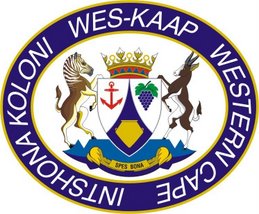
WORLD COMMUNITY GRID TO HELP BUILD MODELS THAT WILL AID IN UNDERSTANDING THE IMPACT OF CLIMATE CHANGE
Last week I attended the launch, at UCT, of a most interesting South African Climate Change project.
Now your own PC can be used, while you are not using it, to assist in climate data processing to improve the reliability of climate change modeling for South Africa.
See the "AfricanClimate@Home" link at www.worldcommunitygrid.org
Please read on.
Capetown, South Africa, September 3, 2007 . . . IBM and the Climate Systems Analysis Group (CSAG) at the University of Cape Town (Bruce Hewitson) launched a global computing effort to improve regional climate models in order to make better projections about what effects a changing climate will have in Africa.
Climate change is of grave concern in all areas, but in developing regions such as Africa, the impact will be more acute because of the lack of access to healthcare and other social services. Widespread floods, for example, can lead to water borne illness and related diseases such as dengue fever or malaria, which are spread by infected mosquitoes that thrive in water. Droughts can have devastating effects as well by bringing on pervasive food shortages.
By making better predictions about how global climate change might realistically affect regions of Africa, resource managers can start to make decisions that might alleviate the adverse effects. For example, they could begin planning an irrigation infrastructure or promoting appropriate drought resistant crops. The project, “AfricanClimate@Home,” will use the vast computational power of World Community Grid, a virtual supercomputer comprised of hundreds of thousands of individuals who donate their unused computer time, making it as powerful as one of the world’s top five supercomputers. Researchers will use the computational power of World Community Grid to improve the models used to predict the climate by conducting simulations in small regions of Africa and then checking them against real observations.
While large-scale global climate models provide people with a general idea of what the climate may be like over a wide area, they do not necessarily reflect what will happen in a particular region because the global models do not sufficiently take into account large lakes, mountains, or plains that can affect the local climate.
Lead researcher Dr. Mark Tadross, says, “Making predictions about the climate requires an enormous amount of computational power because of all of the variables, such as temperature, wind, pressure, and humidity. In order to improve the models, we need to come up with better algorithms that will more closely match what is observed in a local area. By using World Community Grid, we have the computational power necessary to run the tests we need to improve our models.”
Once researchers have access to models that more accurately predict regional weather patterns, they can then begin to run forecasts about how global climate changes may affect the region. People can then use the data to make management decisions related to agriculture and water resources. This is important in an area of the world that is still developing and often does not have adequate infrastructure. Forewarning any potentially dramatic changes in climate, especially those related to extreme events such as droughts and floods, can enable vulnerable communities and disaster management teams to act in advance of the climatic hazard.
“We can all have a profound effect on this research by simply by donating our unused computer cycle time,” said Stanley Litow, Vice President of Corporate Citizenship and Corporate Affairs and President of the IBM International Foundation. “If you own a computer and can access the Internet, then you can be a part of the solution".
To donate your unused computer time to this project, you can register on www.worldcommunitygrid.org and install a free, small software program on to your computer/s. When computers are idle, for example people are at lunch, their computers request data from World Community Grid’s server. These computers then perform climate modeling computations using this data, and send the results back to the server, prompting it for a new piece of work. A screen saver will tell individuals when their computers are being used.
World Community Grid, the largest public humanitarian grid in existence, has an impressive 315,000-plus members and links more than 700,000 computers. However, it’s estimated that there will be one billion computers worldwide by 2008, underscoring the potential for the grid and its computational power to significantly expand and make an even greater impact on a range of humanitarian issues.
Seven projects have been run on World Community Grid to date, including "FightAIDS@Home", which completed five years of HIV/AIDS research in just six months. Additional projects are in the pipeline.
Contact:
Clint Roswell
IBM
914-499-4045
mailto: roswellc@us.ibm.com
Let's support CSAG and have as many South Africans as possible signing up to the World Community Grid "ClimateChange@Home" project and see if we can lead the world in regional climate modeling.
Dennis Laidler









